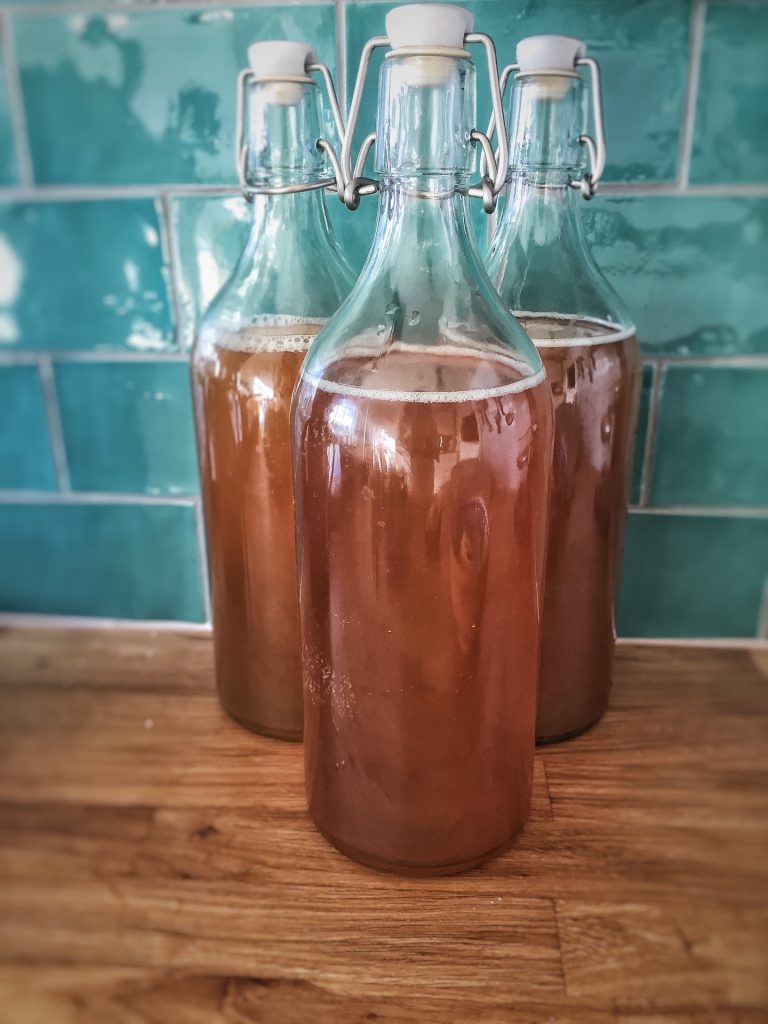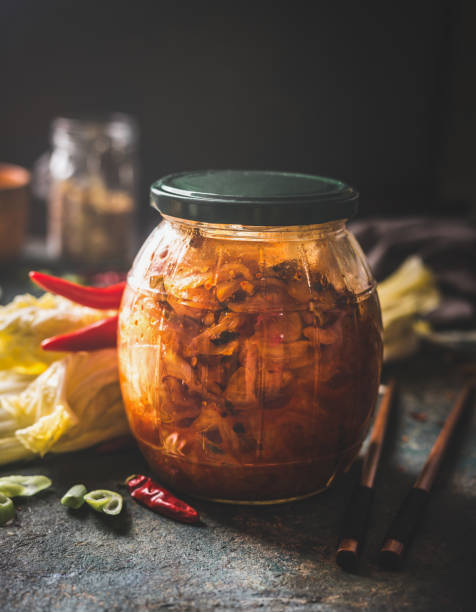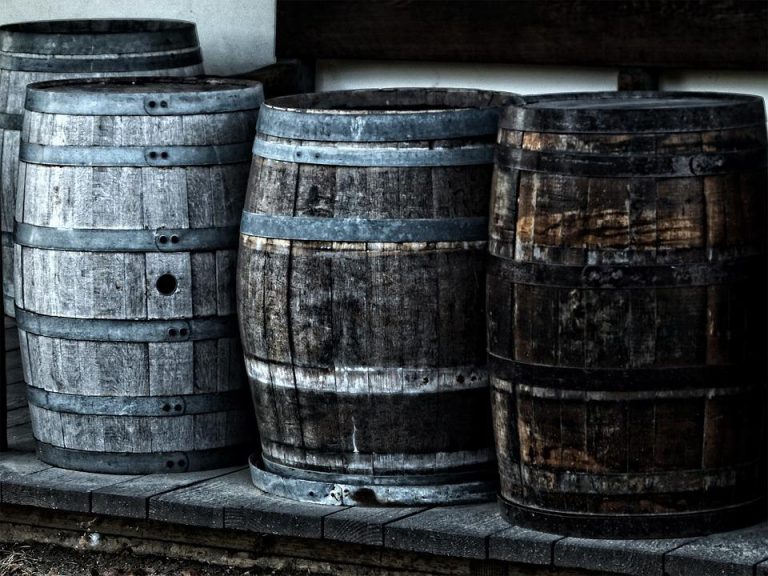Why Is My Kimchi Not Salty Enough?
People have not always been able to grow produce throughout the year. They came up with some innovative methods of food preservation.
The perfect example would be the staple of Korean cuisine, kimchi. It has a salty taste and is well-known for its health benefits.
It can be difficult to achieve saltiness if you are making your own kimchi. It can ruin the experience of preparing it if the Kimchi isn’t salty enough.
It doesn’t have to be the end of the road, fortunately.
If your Kimchi is not salty enough, it is due to the ratio of water to salt.
If you add too much water to your recipe, then your Kimchi will become blander, whereas adding too much salt will make the Kimchi overly salty.
The best way to determine whether or not your Kimchi is salty enough is to taste it.
In this article, I will talk about kimchi saltiness in more detail.
Table of Contents
Why Is My Kimchi Not Salty?
The answer is that you didn’t use enough salt in the process. You probably don’t need a lot of salt for fresh kimchi, but you do need a lot of salt for fermenting.
If you haven’t used the right ingredient-to-salt ratio, you’re not salty enough.
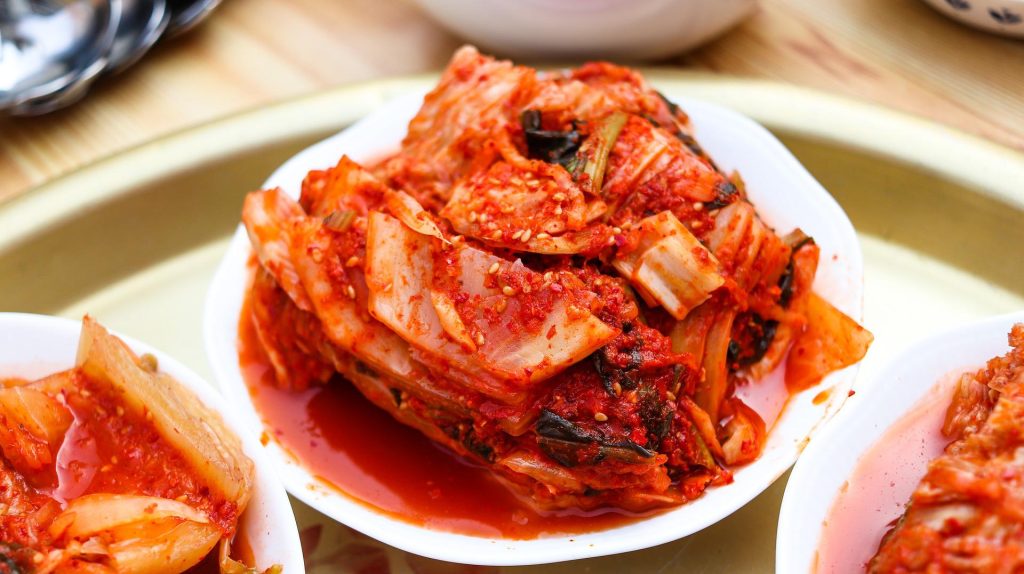
Is It Possible For Kimchi To Get Less Salty as It Ferments?
kimchi-making is an art form, and until you get the perfect recipe, there are bound to be some mistakes.
A lot of the time, the lack of saltiness is the problem. You had a bit of a taste of your kimchi after you prepared it.
Even if it was salty enough before the process began, it might not be salty enough after the process is done.
The salt will be spread across all ingredients if the vegetable in the kimchi mixture absorbs more and more brine.
That is the reason why kimchi is so good, but it is also the reason why it is less salty. The longer you ferment it the less salty it will become.
How Can I Fix Kimchi That’s Not Salty Enough?
Salt is an important part of the process of fermentation as it helps the development of beneficial bacteria.
The crispiness of vegetables in kimchi is what we all appreciate. It is an easy fix if you have successfully prepared your kimchi, but you are missing the saltiness.
The only thing you have to do is add salt and stir it. It’s a good idea to add the salt slowly and in small quantities.
You can give it a taste and see if more salt is needed. You should repeat the process until you are happy with the level of saltiness.
Tips To Prevent Under-Salted Kimchi
You can find an excellent kimchi recipe on the internet or in a Korean cookbook. You have to come up with something a little different sometimes.
If you want to make cabbage kimchi, let’s say you want to make it.
Take the amount of cabbage you have at home and divide it by the amount of cabbage you need for the recipe.
The ratio that increases or decreases the original recipe will be given to you. There are multiple ingredients, including salt, against the ratio.
The amount you need to use will be guaranteed by that.
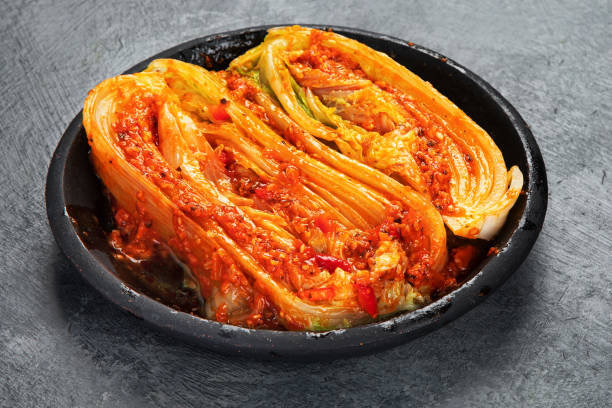
FAQ
It doesn’t mean you’ll get it right the first time even though the recipe is easy to follow. To make the perfect kimchi at home, we need to answer a few common questions.
Is It Necessary To Rinse Cabbage After Salting Kimchi?
A lot of the re-salting stages are associated with making kimchi. The salt will draw out water from the cabbage and prevent it from getting soggy.
You can rinse out the cabbage after the initial salting.
It’s not necessary, but not rinsing the salt after letting it sit for a while may lead to kimchi being too salty, and that’s not what you want either.
If it’s still too salty after the fermentation, you can rinse it off. This is something that many people do before giving their children something.
It is a common practice among those who are trying to reduce their intake of sodium.
Is It Necessary For Kimchi To Be Covered In Brine?
There are no complicated rules when it comes to preparing the brine. Brine is needed to protect your vegetables from mold and air while they are being fermented.
Kimchi does not have to be fully submerged in the brine. It is not uncommon for the best kimchi to have a small amount of brine in it.
The only thing that matters is that you can see the bubbles in the air.
If you want to make sure everything is going according to plan, you can open the container and see how it is progressing.
You are most likely on the right track if there are no foul odors and nothing is wrong.
Is It Possible To Brine Kimchi Too Long?
Learning how long it should stay in brine is one of the things Figuring out how to make the perfect kimchi.
Three to four days is how long it will take for kimchi to fully ferment. It could take two to three weeks if you put it in the fridge.
It will last for about a week before it goes bad if you open your jar. When kimchi stays in its brine for a week, it will develop a sour taste or become bitter over time.
The cabbage will become soggy, and you will lose that crisp quality.
Conclusion
The first step is to remember that there is a solution if you are dealing with kimchi that is not salty enough.
You can use the formula for all the ingredients of the kimchi.
That will ensure that you don’t have to worry about the taste of the food. However, if the damage has already been done, there is a solution.
Adding some salt after the process is done will make the difference.
It is important to remember that salt is required for the fermentation to occur and that too salty kimchi can be equally disappointing.

Foodie and a passionate cook, I am here to share all of what I know about cooking, kitchen, and food prepping.
Follow me for delicious and healthy recipes.

